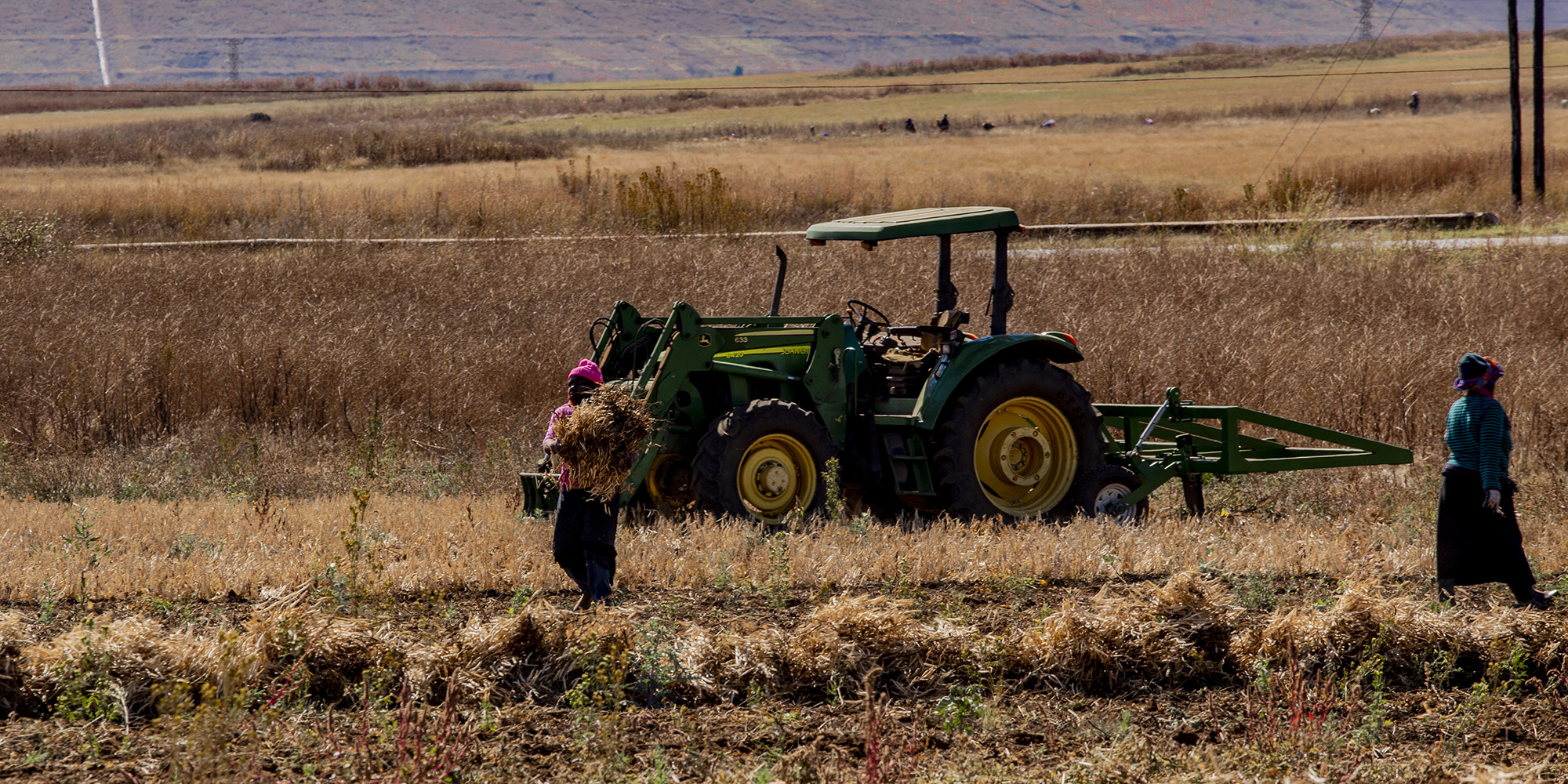Dr Adeoye O Akinola is head of research and teaching at the University of Johannesburg’s Institute for Pan-African Thought and Conversation.
How has land reform impacted on the state, economy, and society? Without doubt, the unresolved land question has put pressure on the state to develop a populist and radical approach to land reform as a matter of urgency, while the uncertainty around expropriation without compensation (EWC) has stunted investment and growth of the land and agricultural sectors.
Furthermore, South African society remains sharply divided between the minority — the owners of capital such as land — and the black majority, who constitute the landless and historically dispossessed, thereby reinforcing farm conflict and murders along racial lines. Land disputes resulted from the Natives Land Act of 1913, which dispossessed Africans of 93% of their land, and EWC has come to the fore due to the failure of the government’s transformation agenda since 1994.
Despite the disagreements over the most desirable land policy shift, the fact remains that the existing reform agenda has failed to achieve the aims and targets of the government. Consecutive ANC governments have displayed a lacklustre attitude towards market-driven land reform and seem incapable of redressing historical land dispossession and the attendant structural violence that has characterised both apartheid and post-apartheid South Africa. One of the key challenges hinges on administrative incapacity and poor financing, which has characterised the “willing seller, willing buyer” model.
Land reform has a political context. Indeed, at the dawn of majority rule, many were optimistic that the liberation struggle would lead to the nationalisation of land, but any radical intent was quelled with the adoption of a liberal Constitution in 1996, which entrenched property rights. The failure of existing land policies and land struggles are clearly illustrated by illegal land occupations, rising evictions, murders and violence on farms, and failed farm projects. Currently, the common form of land acquisition for the black majority is through land or space occupancy. From the forests of KwaZulu-Natal to the far reaches of the Northern Cape, there is compelling evidence of reform failures.
Building on the 1997 White Paper on Land Reform, in 2014, the government created the current land policy built on four pillars: restitution of land rights; redistribution of land; land tenure reform; and development of land. None of these has achieved optimum performance, so rethinking the existing land policy has become a matter of necessity and not of choice.
Debates on policy shift have revolved around two sharp divides: the minority who desire a reform agenda that preserves the status quo and protects property rights, without any significant disruption to agricultural production and food security; against the majority, who favour a transformation agenda and the EWC option, believing that they have “paid through the blood of their ancestors and grandparents”.
Despite the popular optimism that EWC is the necessary instrument to fast-track land reform, it may not be the magic wand capable of effectively redistributing land to the majority and redressing historical injustices. Policy implementation has been a major challenge in South Africa. EWC may later trap land in the hands of the government and a few elites or make the proposed Land Court more powerful than anticipated.
A lively discussion took place at the recent launch of the edited volume titled The New Political Economy of Land Reform in South Africa, edited by myself, Irrshad Kaseeram, and Nokukhanya Jili. The meeting was chaired by Ruth Hall, a leading land expert at the Institute for Poverty, Land and Agrarian Studies at the University of the Western Cape. Professor Tumo Charles Maloka, School of Law at the University of Limpopo and I were the main speakers.
The book launch used different case studies, such as the Khomani San, to buttress the contradictions of the reform scheme. Some of the land allocated to this group was sandy and non-arable, without effective government support for small-scale farming and land productivity. South Africa relies too heavily on commercial agriculture, neglecting the important role of small-to middle-scale farming. The existing reform scheme has thus created two distinctive realities: “farms without farmers”, and “farmers without farms”.
The discussion also focused on key questions around EWC, land reform and struggles drawn from specific case studies, including underrepresented issues such as urban land reform and climate change. The meeting offered an intellectual contribution to the vexed issue of land and presented a much-coveted opportunity to reconceptualise land, land hunger, and land policy in contemporary South Africa.
The 14-chapter book, by both established and emerging scholars from six South African universities, relies on qualitative and quantitative research to locate the unresolved land question in scholarship for the benefit of researchers, policymakers, land practitioners, and others interested in land issues, focusing particularly on the prospects, feasibility, and reality of the proposed expropriation without compensation, pushed especially by Julius Malema’s Economic Freedom Fighters.
While the importance of land has diminished somewhat in post-apartheid South Africa, land continues to be key capital and social property, which should not be subjected to the “invisible hands of the market”. The meeting interrogated the adoption of a political economy approach by unravelling the power relations between the owners of land and the landless majority. A political economy approach engaged the place of class in the development of a capitalist mode of production and relations in the land sector, which is evidenced by the racialisation of land conflict between the white minority and the black majority.
Thus, it seems that South Africans will have cause to continue the debate around land in the foreseeable future due to the complex nature of land relations. What was reinforced during the book launch is that land is tantamount to life and strategically located at the centre of human and social security, so the quest for land access in South Africa is a quest for survival, inclusive democracy, and effective governance. DM




